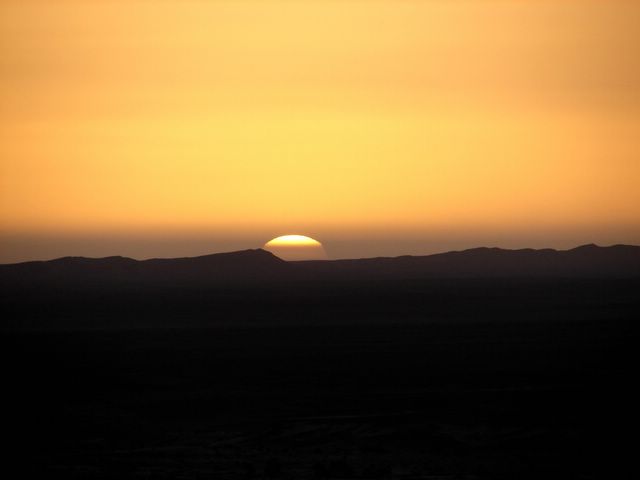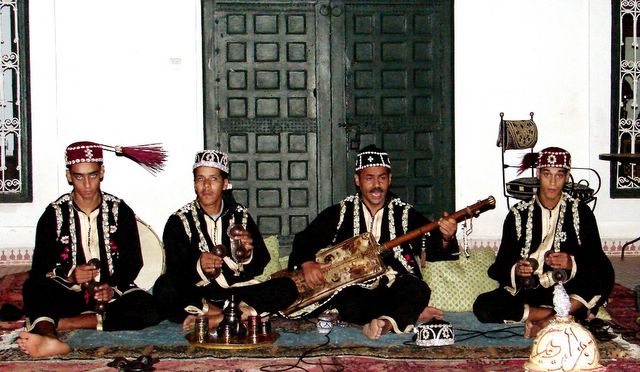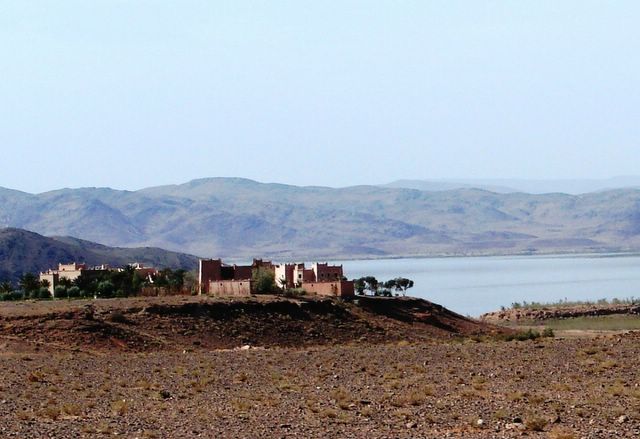As I silently watched the heightened frenzy about immigration in the US and how some politicians along with media 'personalities' have successfully portrayed the very foundational basis of this republic as today's biggest threat to American national security, I could not help but note the irony. As I watched political pundits rattle America's fear and anger points over immigrants, I privately became distraught by the hateful speech and the senseless dehumanizing the anti-immigration drive is generating. It appears that some Americans today have conveniently misplaced the diaries of their own fathers.
Therefore, in an attempt to inform the ongoing debate on immigration, it may be of value to visit the attic or the basement and be reminded of who the fathers of this nation were, for you may find that they were not so different from those newcomers who are now seeking an American future for themselves and their children. Americans, today, can trace the origins of their ancestors and the motivations that led them to this country to any of four categories:
- Those who fled famine and poverty
- Those who fled political and religious persecution
- Those who went in search of economic and entrepreneurial opportunity
- Those who came against their will (Slaves)
America's new immigrants continue to fall in the same four categories, or combinations thereof, than those who preceded them. The overwhelming majority of America's new immigrants fall within the first category; they are mostly of South American origin escaping dire poverty in search of decent lives north of the border. Some are from shattered communities in Africa and Asia also fleeing pronounced poverty and famine just as did thousands of Irish and other European immigrants during the early days of the republic and at the turn of the 20th century.
The second group of immigrants that continues to seek refuge in America are those who are fleeing political and religious persecution. In the past 30 years, many came from the Soviet Union, South Asia, China, Africa, and the Middle East. They escape torture chambers, mass murder, genocide, and tyranny in search of a better, safer future in America. They continue to do so in the tradition of the early Puritans and the many Americans who once fled political and religious persecution in old Europe.
The third category of immigrants comprises those who continue to come to this country in search of the 'American dream'. They bring skills and ideas and hope to employ them in America for economic gain. Today, they are the agents of globalization; they are the many multinational businesses who seek market presence in the US; they are the many skilled and highly educated individuals who are employed in America's hi-tech and service industry. They come to America in the tradition of the early European industrialists, surveyors, explorers, and entrepreneurs who contributed greatly to the economic foundation of this country.
Finally, there were the slaves. Although we can find great comfort in the fact that slavery has been long abolished in this country, we must know that there are criminal organizations in our midst that continue to trade in human beings, bringing many from desperate surroundings to be enslaved into hard labor and prostitution. There were some law enforcement successes in combating human trafficking including the prosecution of perpetrators in sweat shop cases in New York. President Bush has also talked several times, including at the UN, about the need to combat the problem of modern human slavery, including the forced prostitution of thousands of young women.
Therefore, those who came before are, in a large part, no different from those who are coming now. That is, yesterday's John Doe has a lot more in common with today's Pedro Perez and that is an important comparison to make before objectively debating the merits of the concerns raised regarding the current situation of immigration in the US.
Now, let us discuss three of the main topics raised in this debate, which has undoubtedly become emotionally-charged and fast-drained from important historical and humanitarian considerations.
- National security
- Integration and assimilation
- Economic impacts ('Job loss')
Some State Capitols are enacting laws to deny public services, including health and education, to undocumented immigrants and a Bill is advancing through Congress that would force all States to prohibit the issuance of Driver's licenses to those same immigrants. This is all because some of the 9/11 terrorists had valid drivers’ licenses at one time. The idea is that if terrorists coming to America illegally can not obtain Drivers' licenses, then they won't be able to access planes and secure sites. Now, this misses two important points:
- First, any American teenager under the age of 21 would probably point you to where you can get a fake ID that is just as good for a beer in a New York bar as it is for boarding a plane at JFK airport.
- Second, none of the 9/11 terrorists came to America illegally. They all had valid visas, although some overstayed them, and would have been able to obtain Drivers licenses even if the proposed restrictive measures were in place.
Therefore, this is a senseless excuse for denying undocumented immigrants driving privileges and other public services. The cost of such legislative actions can be measured both economically and in terms of public safety. An undocumented immigrant who came to this country to escape poverty in his/her homeland works hard to earn a living in America. He/she crossed a desert in desperation and risked death to get here. I do not think that not having a Drivers license, will dissuade them from living here. If some politicians think that denying driving privileges and public services will turn immigrants away, then they do not understand poverty and economic desperation.
Regarding border control, there is so much the government can do within reason to control the flow of immigration. Border actions in California and Texas did not dissuade immigrants from taking a longer, harder route to get here. As long as the north-south economic divide continues, poor people will risk their lives and that of their loved ones for a tiny shot at a better future.
The point I argue is that we are talking about human lives here; about desperate hopes and dreams that some in this country are dismissing outright in this debate. I do not argue that there can not be improvements to border control but rather that the issues are bigger than the simplistic notions we hear. Those issues have to do with international development and poverty reduction at a global scale; they have to do with human suffering and the desperate hope to overcome it.
On the second point often raised - integration or assimilation of immigrants in American society - let me say this: Did any of America's immigrants ever integrate or assimilate? If so, then integrate what? Did the European immigrants assimilate themselves into America when they came here. Well, if they did, they would be speaking Native American languages and celebrating Native American traditions and belief systems today. It is just ludicrous to talk about integration and assimilation in America. This may be a valid argument in Europe, but not here. The very founding of this nation rests on the idea of diversity. The founders insisted on a republic that houses as many cultural groups, religions, political affiliations, and social orientations as possible so as, in the words of James Madison, "to guard the society against the oppression of its rulers”, as well as “guard one part of society against the injustice of the other part.”
Lastly, many talk about undocumented immigrants taking 'American jobs' at low wages. One advocate of anti-immigration boasted: "There is no such thing as jobs Americans don't want, but there are jobs Americans won't do at low wages." This statement shows a flat-out ignorance of the current realities of global markets and the US economy. This is a classic example of the law of supply and demand. In other words, you can't have it both ways - get over it. You can't demand low prices in a free market economy all while asking for high wages. In addition, the US economy has to compete with rising export-led economies such as China and India. So, we can not reasonably ask US companies to compete with Chinese goods on the basis of high American wages - a realignment of popular thought on this issue is in order because as, Thomas Friedman correctly points out in his latest book, the earth is being flattened; the playing field is being leveled as a result of globalization and information technology.
In one of the rare TV shows I watch, The Wire, a state patrol officer, after coming in contact with the suffering of Eastern European girls who are smuggled into the port of Baltimore in ship containers, said: 'What they need is a Union'. Sadly, that is what the voiceless and faceless undocumented immigrant needs to fight for his dignity in this country. Many would argue that there are many lobby groups and organizations that speak on behalf of immigrants in this country. I beg to differ. What those groups speak for are business interests who employ or profit from those immigrants. So, what interests them the most is the status quo. They are happy as long as the government does not crack down - an alternative everyone knows is far-fetched given the fact that in an era of budget deficits, no government will venture into bankruptcy conducting manhunts across the country.
It would be quite a statement to see undocumented immigrants demonstrate their economic power by collectively declaring a strike or slow-down for a 30-day period. This is also far-fetched because immigrants live in constant fear to be found out and, hence, discontinue the improved lives they have built. But that is what it will take for undocumented immigrants to be recognized for the hard work they do every day in this country as opposed to the slander they now face.
Either that or the dogged leadership of the presidency, at its own political risk.


























